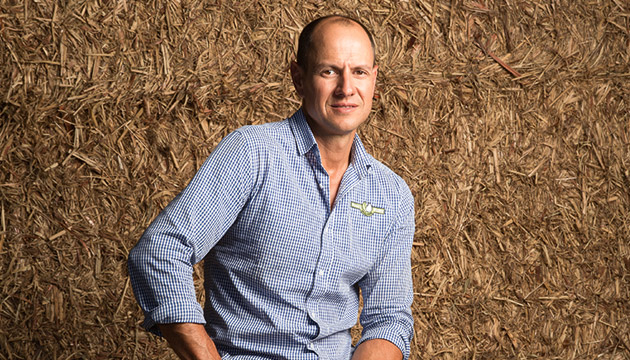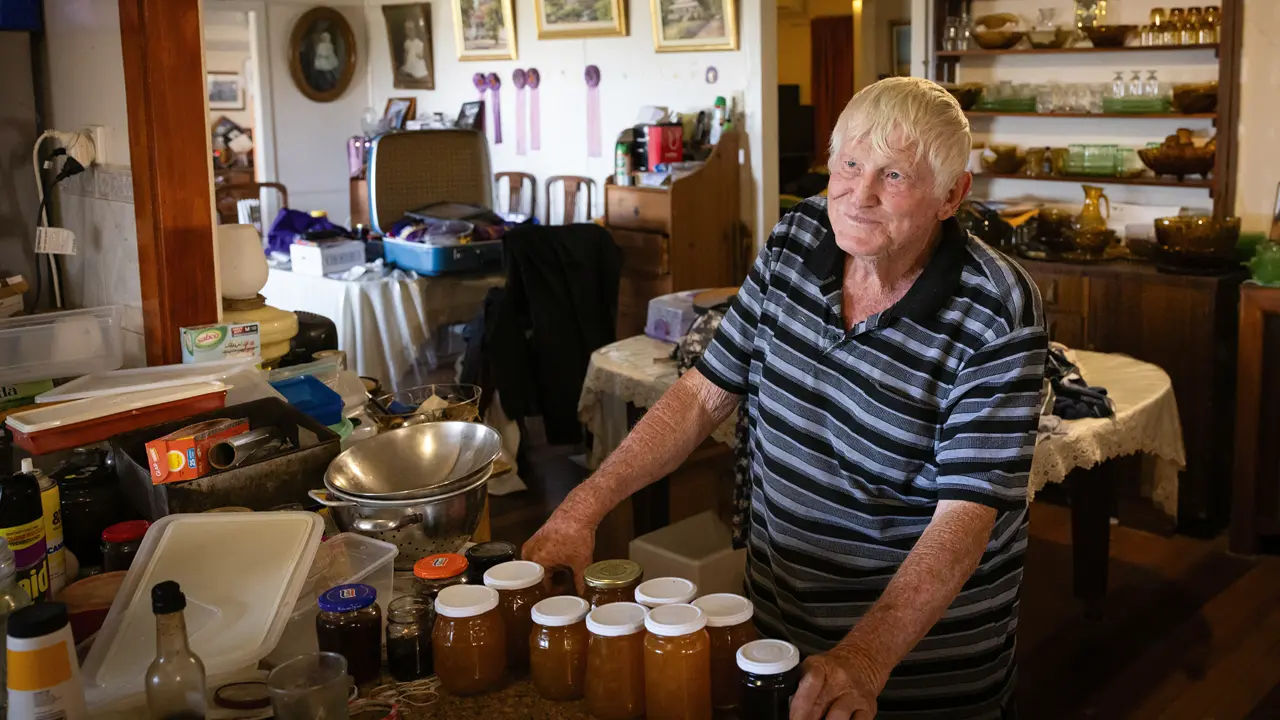Farmer of the Year Matthew Keith embraces diversification and education for the future of agriculture.
Story by Bruce McMahon Photo by Ern Malley
Matthew Keith is a lean and tanned Queenslander, father, part-time fisherman and now Australian Farmer of the Year. He wears these titles with grace and assurance.
This astute 40 year old is an integral part of the Keith family’s sugarcane farm and burgeoning mulch and compost business nestled in flat, low-lying paddocks just north of the Gold Coast’s glamour. It is a piece of country opened up for cane farming by his grandfather Alic Keith with a small holding back in the 1940s; today, the extended family farms 600 hectares of sugar cane here at Woongoolba and produces 1.5 million bags of value-added cane mulch, two million bags of compost and soils, plus tonnes of recycled pine chips.
The business of Rocky Point Mulching continues to prosper under Matt’s management. Keen to stress this is a diversified family company, with grandfather, father, uncles, siblings and cousins all involved, Matt says he’s the numbers man, as Rocky Point’s general manager. Those numbers have been adding up since mulching became more than a sideline in 2001, about the time Matt returned from the Queensland University of Technology armed with a degree in applied science and mathematics.
“There was a severe drought about 25 years ago in the area and we decided to cut some green cane and bale it for cattle feed,” Matt says. “When it did start raining we were left with all this mulch on the ground and it was ruined. We started selling it beside the road and up at Mount Tamborine for avocado growers. Then we discovered there was use for it as garden mulch, so 15 years ago we began Rocky Point Mulching, started processing it, grinding it up and compressing it into vacuum-sealed bags.”
Now sold in 12–13-kilogram plastic bags – an amount that can cover some 10 square metres of soil – the mulch is an easy-to-handle product sold across Australia to hardware and garden stores, including the Mitre 10 chain. What was once waste material, often burnt off, can now contribute at least an extra 50 percent of the value of the cane crop. For some farmers that can be the difference between being viable or not, Matt says. It is welcome-added security for cane farmers in the face of variable weather conditions and sugar prices.
Along with collecting waste from the family farm with modified hay-baling equipment, Rocky Point Mulching today spends about $2 million a year buying in cane mulch from as far afield as Murwillumbah to the south and Childers to the north.
And this mulching of crop waste has led to new ideas, from making composts and organic soils to crunching timber waste, such as pallets, into coloured pine chips for landscaping. It all adds to Rocky Point Mulching’s multi-million dollar annual turnover and employment of 60 local people.
Industry recognition has arrived along with the dollars. Queensland Farmers’ Federation president Stuart Armitage says farmers such as Matt should be commended for their ability to diversify and grab opportunities.
“The ability to take a perceived negative to their farm business operation and turn it into a profitable enterprise is the kind of innovative approach agriculture requires to continue its growth,” Stuart says.
This story excerpt is from Issue #111
Outback Magazine: Feb/March 2017










